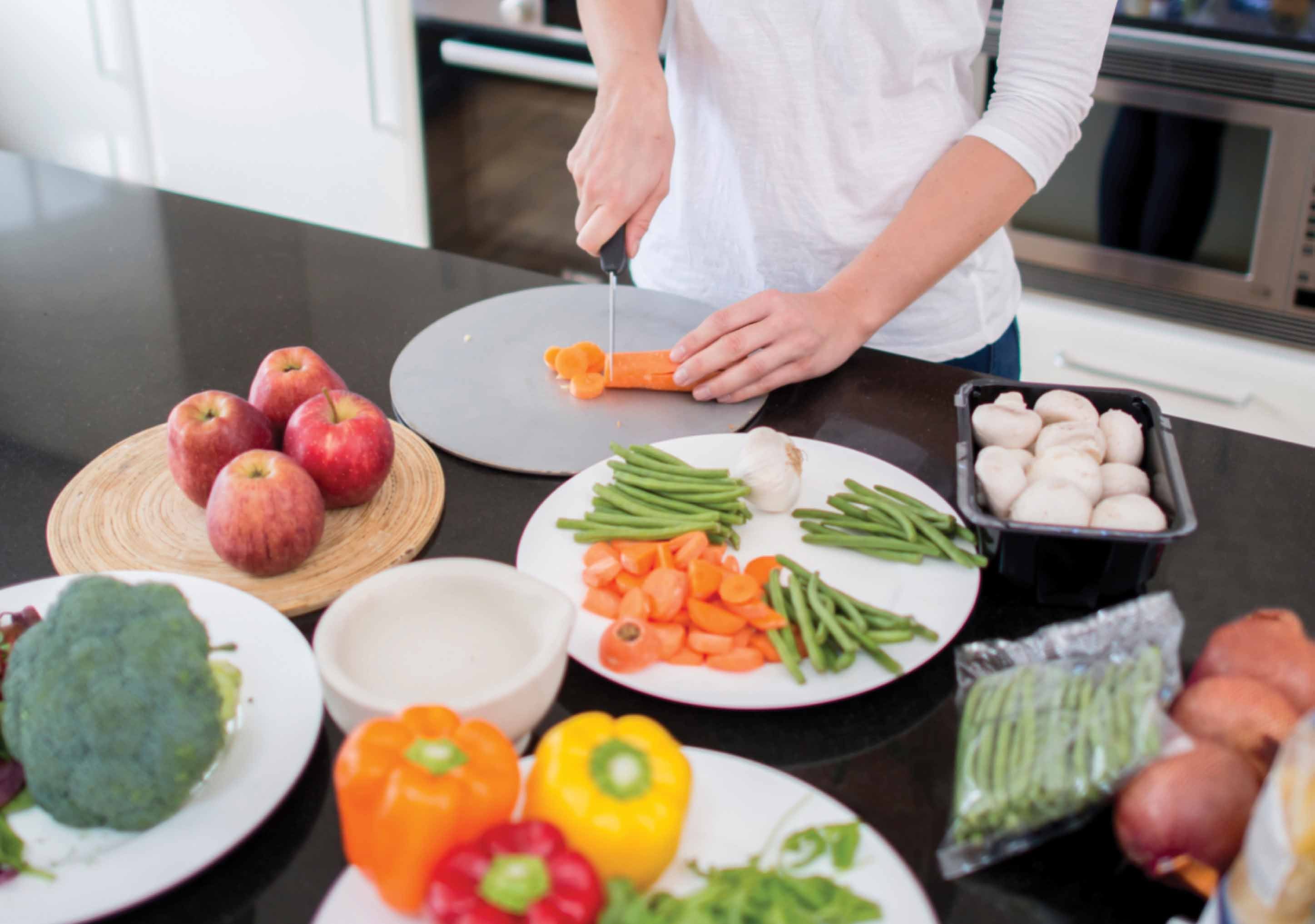Your Early-Season Nutrition Plan

Photo: iStock
Q: My first tri of the season is a few months away. What can I be doing now nutritionally to help my race?
A: The keys to quality training time are adequate recovery, proper hydration and a nutritious diet consisting of real food. It’s also important to experiment and find your perfect blend of nutrients based on your goals, training cycle and stage of life. Regardless, eating well should be the rule, not the exception.
Pre-Season
Focus on packing your plate with quality carbohydrates like vegetables and fruits, particularly leafy greens, cruciferous vegetables (e.g., broccoli, cauliflower, kale) and berries. Carbohydrates are the main fuel source during high-intensity exercise and help to spare your precious muscle tissue from being used as energy.
Eat at least 0.5–1 gram of protein per pound of lean bodyweight from beans, lentils, free-range eggs, grass-fed meats, organic dairy and low-mercury fish. Protein is broken down into amino acids, which are responsible for the growth and maintenance of cells, creating antibodies for immunity and supplying small amounts of energy.
Get your fats from avocados, nuts, seeds, fatty fish, olives, organic dairy and grass-fed butter. Fat is an excellent source of energy and is essential in absorbing vitamins A, E, D and K as well as keeping you full and maintaining your blood sugar.
To maintain optimal hydration, drink water consistently throughout the day and for workouts lasting less than 90 minutes. The color of your urine should be pale yellow, and caffeinated beverages and alcohol should be consumed in moderation.
RELATED: The 6 Basic Nutrition Needs Of A Triathlete
In Season
As you begin your training, the majority of your diet should consist of high-quality fats, with 15–30 percent of your energy coming from protein and the remaining amount from carbohydrates. This will allow your body to adapt to using fat effectively as a fuel source, reducing your reliance on high-carbohydrate engineered foods like gels and chews.
As your training volume and intensity increases closer to the season, you may notice your appetite also increasing, warranting a shift to slightly less fat and more carbohydrates. This is the best time to experiment with your meals and snacks leading up to your event as well as perfect your hydration plan.
RELATED: What Is The Right Balance Of Carbs, Fat And Protein?
Pre-Race
In the days leading up to the race, continue eating well and hydrating to maintain pale yellow urine. For short course, it’s unnecessary to “carbo load” or drink extra fluids or sports drinks in the days leading up to the event. In fact, keeping your diet as familiar as possible is important to conserving energy, staying “regular,” managing weight and sleeping well.
RELATED: Why A Pre-Race Plan Is A Must
Race Day
Since short-course triathlon tends to be high intensity, smaller, easily digestible, familiar meals and snacks are important, such as yogurt, oatmeal or fruit. The closer you eat to race time, the less you’ll want to consume. If you can’t eat before an event, or if you’ll be racing for more than an hour, you may want to consider using a sports drink for hydration, energy and electrolyte balance. Choose a beverage that tastes good to you at full strength. Consume your favorite balanced breakfast 2–3 hours before the race start. Tune in to your body and don’t force fluids or foods if you’re not feeling hungry or thirsty. If it’s hot, drink cold fluids to keep your body temperature from rising too quickly. Once you’re on the bike and run, drink 4–8 ounces of your favorite sports drink every 10–15 minutes for events lasting longer than 1 hour. When you’re finished, replace lost fluids and electrolytes with your favorite sports drink or chocolate milk and electrolyte-rich foods like bananas, pretzels, oranges or potato chips.
Whether you’re new to triathlon or a seasoned veteran, experiment with what works best for you, eat well and stay hydrated for your best performance!
RELATED: How To Fuel For Your First Race
Chris Newport, RDN, LDN, EP-C is a mom, real-food advocate, entrepreneur and triathlon coach. She founded The Everyday Athlete Matters, an integrative training and performance center in Cary, N.C.